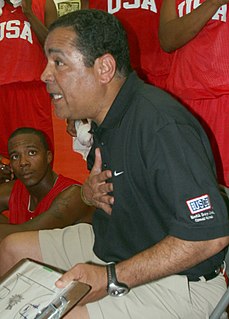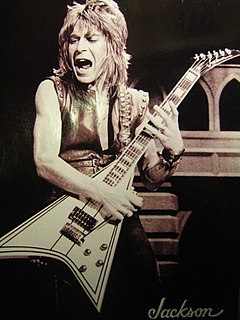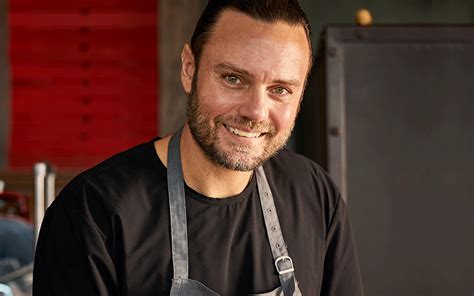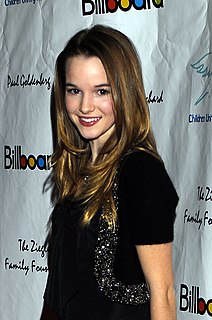A Quote by Kelvin Sampson
My personality is more like my mother's. She was fiery. She had more of a temper. I always thought she had enough determination that she could do anything. She could fix anything. I think all children need that feeling from their parents.
Related Quotes
...fact was she knew more about them than she knew about herself, having never had the map to discover what she was like. Could she sing? (Was it nice to hear when she did?) Was she pretty? Was she a good friend? Could she have been a loving mother? A faithful wife? Have I got a sister and does she favor me? If my mother knew me would she like me? (140)
...she could express her soul with that voice, whenver I listened to her I felt my life meant more than mere biology...she could really hear, she understood structure and she could analyze exactly what it was about a piece of music that had to be rendered just so...she was a very emotional person, Annette. She brought that out in other people. After she died I don't think I ever really felt anything again.
My mother hid the struggle from us children. She complained about her salary, and she had a tough time. Although she became a headmistress, she still had to do a lot of sewing. The more I think about her, the more remarkable I realise she was. And she understood straight away when I said that I wanted to write.
Mother Teresa was a hero of mine for a long time. I just like the way she took on the world from a very humble place. She has a great quote. When she was leaving her monestary to start Sisters of Charity, she had two pennies. She was asked by a head priest what she could possibly do with two pennies. She said, 'Nothing. But with two pennies and God, I can do anything'.
She turned to look at Sebastian, lying on the bed. He was shirtless, and even in the dim light the old whip weals across his back were visible. She had always been fascinated by Shadowhunters but had never thought she would find one whose personality she could stand for more than five minutes, until Sebastian.
My mother was very passionate about life and she would do anything for us. And she had to fight alone to raise us. We never had a lot of money for extras or anything. She had to work six days a week, and then she would do breakfast, lunch and dinner. She was a super-woman! For me, I don't know how she did it with three kids.
Were all first loves like that? Somehow she doubted it; even now it struck her as being more real than anything she'd ever known. Sometimes it saddened her to think that she'd never experience that kind of feeling again, but then life had a way of stamping out that intensity of passion; she'd learned all too well that love wasn't always enough.
The girl had a certain nobleness of imagination, which rendered her a good many services and played her a great many tricks. She spent half her time in thinking of beauty, bravery, magnanimity; she had a fixed determination to regard the world as a place of brightness, of free expansion, of irresistible action, she thought it would be detestable to be afraid or ashamed. She had an infinite hope that she would never do anything wrong. She had resented so strongly, after discovering them, her mere errors of feeling.
I think my mother became the muse because she had everything when she was in Hollywood: she had the marriage, the success, the money, all the films she wanted to do and yet even her, she had a longing and wanted to work with a film that had meaning, something more profound. And I think that was very touching to father.
She comes to me when she wants to be fed. And after I feed her -- guess what -- she's off to wherever she wants to be in the house, until the next time she gets hungry. She's smart enough to know she can't feed herself. She's actually a very smart cat. She gets loved. She gets adoration. She gets petted. She gets fed. And she doesn't have to do anything for it, which is why I say this cat's taught me more about women, than anything my whole life.
He lifed his head and looked down at her seriously. "Could you," he began, then he had to clear his throat. "Could you learn to be fond of me?" he asked. "With enough time?" She looked at him in surprise. It was the first time in all their acquaintance that she'd heard him sound the least bit hesitant. "I don't need to learn anything," she said, before she thought better of it.
Both of my parents are music teachers. My mother owns the school that I taught in. My brothers and sisters are musicans. My mom pushed me all the time. She knew that I could do it. She knew more than I did. She thought I would go somewhere. She gave me the job and helped me get equipment, which a lot of parents don't do. Alot of my students had to go out and fight for it.






































